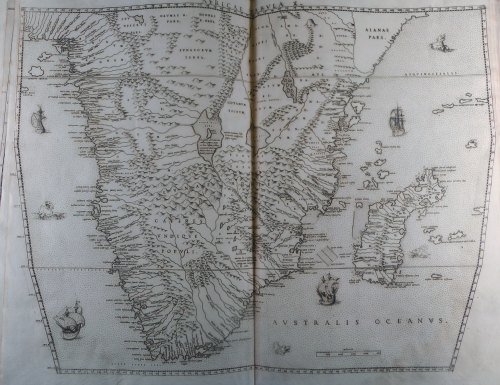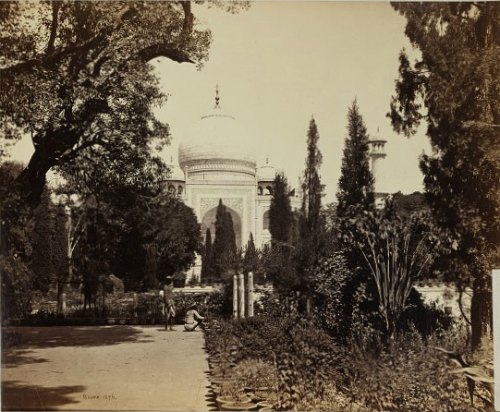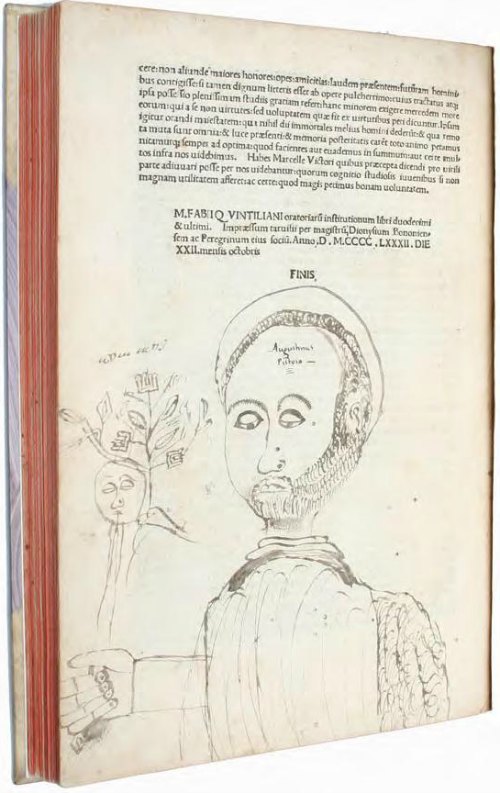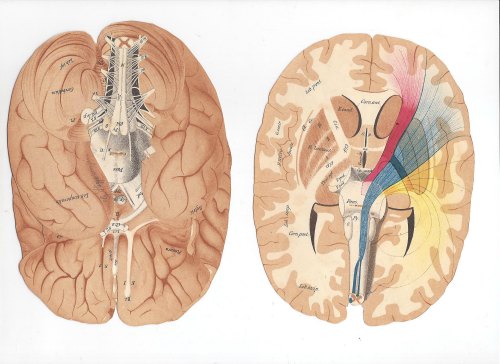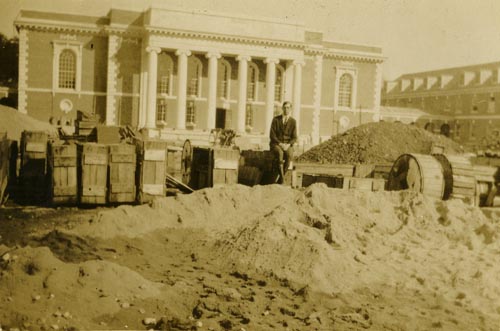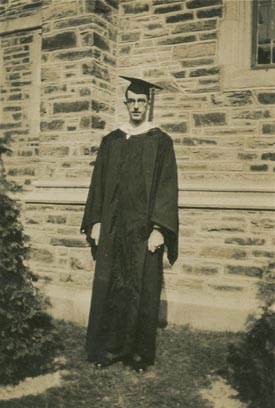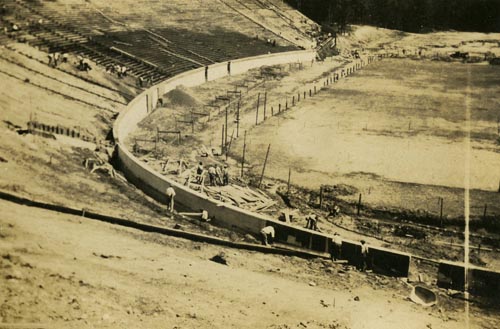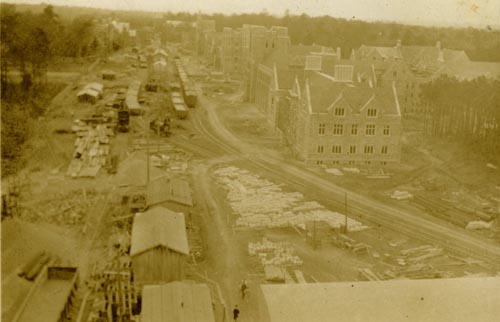The Selig Harrison Papers is a recent accession to the Center for International Policy (CIP) Records. Selig Harrison, the director of the CIP’s Asia Project, has specialized in South Asia and East Asia for fifty years as a journalist and scholar. These papers comprise a broad survey of the political and economic relations throughout Asia and between the U.S. and Asia, providing the birds-eye view from which Harrison’s research was conducted. They are concerned with public men and women – leaders and governments, the structures and organizations that most visibly influence the course of history. Likewise, these papers are very much bound up in the problem of representation, not only because they examine the institutions that are most often represented in the media and in political discourse, but because the project of the Center for International Policy is to shape the way such institutions get represented in the media and in political discourse. The Selig Harrison Papers offer a sense of the high stakes of the practice of representation, and at stake for Harrison is international policy and the course of history itself. Thus, one aspect of these papers that struck me was the degree to which Harrison was and is invested in anticipating the behavior of political actors and the consequences of that behavior so as to affect it. Some of his original files were even labeled as questions (e.g. “Should Pakistan survive?” or “Is Musharraf backing down?”).
The Selig Harrison Papers most heavily focus on the Korean Peninsula, especially North Korea. The majority of these papers are dated from within the last 20 years, though the series contains a few documents as early as 1960. Particularly notable are some North Korean materials from 1965-1972 on women and children (see “Women and children in the DPRK” folder in the Geographic Subseries) and two North Korean children’s books from 1987 (see “Children’s tales – Pyongyang” folder in the Geographic Subseries).
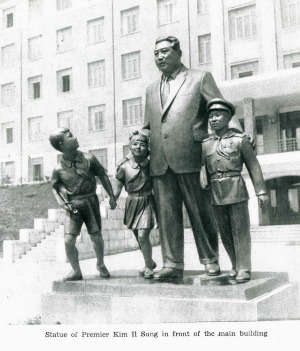
The material on women and children includes some fascinating propaganda from 1965, promoting Kim Il Sung’s affinity for and fostering of North Korea’s children. Kim Il Sung saw in children the continuance of revolutionary politics given that they were raised as revolutionaries (hence the importance of women in the DPRK). The particular chapter, called “Give the Children the Best,” from this 1965 text begins, “Children, to Comrade Kim Il Sung, are irreplaceable objects of love, for whom it is his basic and inviolable principle that they must have the best. His warm heart and deep care for the children are unlimited.” The sentimental language of love and the valorization of a particular politics of care that is often seen as distinguishing of communist governments (which should be further distinguished from communism as a political theory) is manifest in this passage and throughout the text. The child is representative because it comes to stand for the general relationship of the government to its people. This text asks us to think of love not as a private emotion but as a political concept, as an essential element for transforming the objectified child into a fully formed political subject, which is to say, a subject educated in the “revolutionary ideology and the indomitable fighting spirit of the working class.”
This propaganda reveals, more specifically, the orphan to be the national symbol of North Korea, the figure, it seems, most capable of being revolutionary. After all, just as the orphan is a broken link in a chain, so revolutions seek to create a radical break with history. “None can call them orphans any longer,” the text reads. “Comrade Kim Il Sung is in truth a father to all those children who have lost their fathers and mothers.”

Kim Il Sung named the child “king of the land” and in 1963 built the Children’s Palace and School in Pyongyang. The Palace offers, according to the pamphlet from which the above photographs were borrowed, an education that incorporates the arts and crafts, such as sculpture, embroidery and drawing, history (according to the ideology of the Worker’s Party) and the sciences, as well as and perhaps most importantly engineering for the production of a population capable of (re)building a nation.
Reading about the palace in Pyongyang raised a few questions for me – what work is the language of sovereignty (the children as kings who attend school in a palace) doing within a communist regime devoted to the Workers’ Party? In other words, what valences does such language have within this seemingly counter ideology? The language of sovereignty seems as if it should be opposed to, not aligned with, the way the text writes of the child as not yet fully formed subjects but rather as objects of love and care. Instead, it is as if the language of the sovereign, here, is meant to denote the potential itself for a being objectified by care to become revolutionary and to care, finally not as kings but as political subjects, in turn.
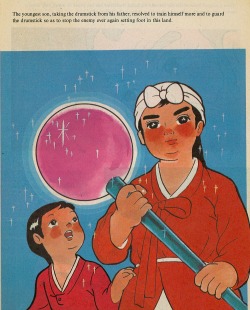
A second and related set of materials are the two childrens’ books, published by the Foreign Languages Publishing House in Pyongyang in 1989, titled A Tale of Two Generals and A Winged Horse. These books, fairy tales “told by the great leader Comrade Kim Il Sung,” are illustrated and were translated from North Korean. Both of these fairy tales are stories of militarization about defending the land from foreign invaders. Indeed, within both of these books there exists a constant threat of the foreign. The lessons of these books are consistent with those expressed in Kim Il Sung’s vision of the Children’s Palace and School – strength and courage for one’s country only bear value if matched by intelligence and a sentimental identification with the land. In A Winged Horse, the youngest son who has cultivated himself most roundly is the only son able to ride the winged horse that allows him to save his village from foreign invaders.
There isn’t anything exceptional in these lessons themselves; they are similar to the lessons many of us were given as children. But what interests me in both the propaganda material and the children’s stories is, first, that they are all highly invested in the problem and, more importantly, the stakes of self-representation, which seems to be essentially what Selig Harrison studies as a journalist and scholar. Second, in both sets of materials the pervasive devastation of North Korea during the Korean War always shadows the representational figure of the child – the redeemer. Because the child is conceived of as the one who can redeem North Korea, Kim Il Sung wanted to call attention to his investments in children’s schools even in the midst of the wreckage of the Fatherland Liberation War (Korean War). These materials thus juxtapose the reality of famine and large-scale devastation with what is rendered as the comfort and even the luxuries provided to North Korean children as the nation anticipates the time of reconstruction.
Post contributed by Clare Callahan, graduate student assistant in Rubenstein Technical Services and the Human Rights Archive.





